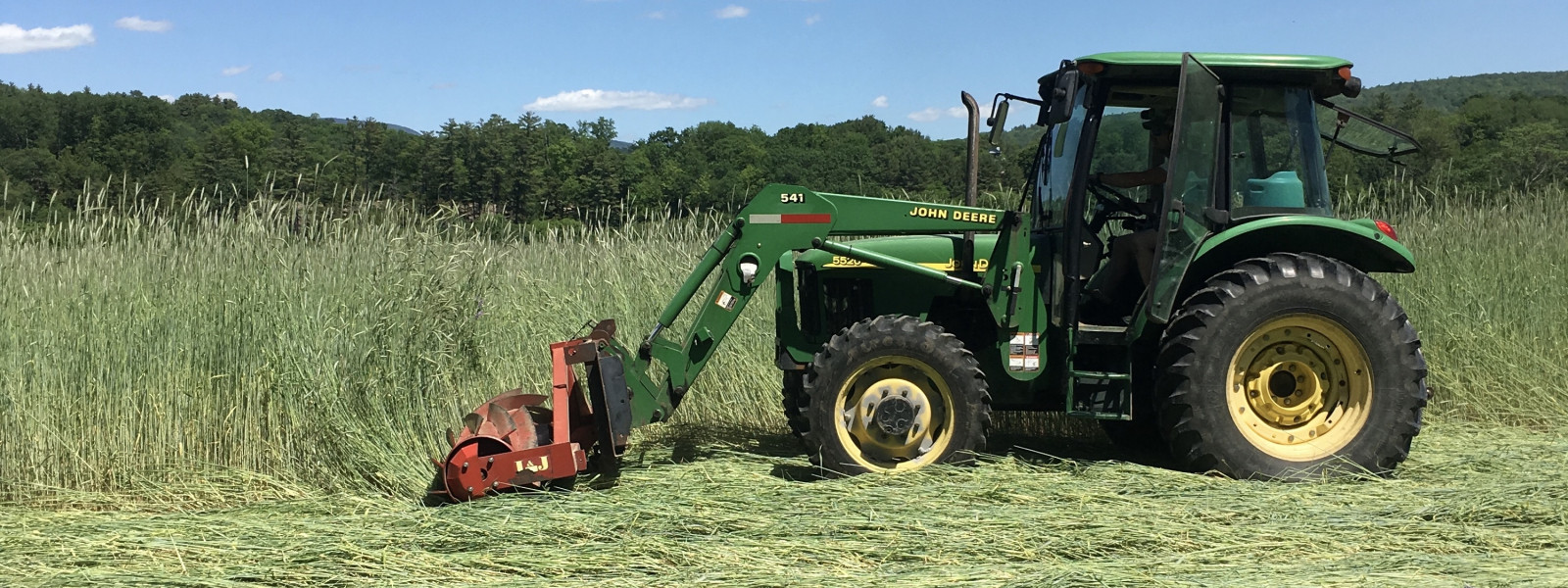Teen Fellow Blog: The Mountain School
Julia Mathews, 2024 Teen Farm Fellow, is in 11th grade at Essex North Shore Agricultural & Technical School, where she studies sustainable horticulture. She is interested in food systems and marketing. During this program, she gained more respect for farms and the land.
The Mountain School
On July 23rd the Teen Farm Fellows took a trip to The Mountain School, which offers a semester-long boarding program for high school juniors. The program includes living and working at the school’s Vermont property that is both a full time functioning farm, and academic institution. The school is a great first step for students looking to engage in agricultural work, and provides students with the hands-on experience of growing food for their own consumption.
Upon first arriving at the school, one thing that stood out to the Farm Fellows was how big the school was. Walking to the dining hall, we saw two huge greenhouses, many roads, and two barns. One barn housed sheep, and Gwynne Durham (Livestock Manager, LGBTQ+ Student Coordinator, Advisor, and Residential Life staff member) explained how multiple pens were set up to create separation between other sheep and pregnant or mother sheep. The second barn housed baby chicks.
Gwynne explained that chickens are the least sustainable animal on the farm due to the process of buying chicks and the inconvenience of finding someone that can perform on-site slaughter services. To our surprise, she explained that cows are the most sustainable animal at the school because they can source all of their food on the farm—grazing the fields in the summer and surviving the winter eating hay harvested from the property. During the winter, the cows spend their time in a barn where students continuously put down hay instead of mucking it out. As the old hay composts, it gives off heat so they don’t have to pay to keep the barn heated.
After visiting the barn, Liana Horster, the farm manager, identified which fields the cows and goats go into and how they have a guard alpaca that keeps away predators. She showed us the giant freezers where they were able to store all this food to feed The Mountain School attendees and staff after the peak of abundance in summer.

The Mountain School encompasses all three pillars of sustainability: economic, social, and environmental. We saw an example of sustainable economics with how they used their own compost to heat the cow barn in the cold months. The environmental pillar is no doubt very important to school, as they made it clear to us that they try their hardest to create a fun and safe learning environment while also teaching and caring for the environment that surrounds them. The social pillar is important to almost everyone who goes to The Mountain School. Kids create bonds over the semester they are at the school and learn how to problem solve and communicate with each other through the work they do every day.
The Mountain School is a great school, where juniors in high school can learn life skills and create deep connections, not only with one another but with themselves as well. They will come out of the semester with a deeper understanding of the work that goes into the food that they will eat and how it grows.








